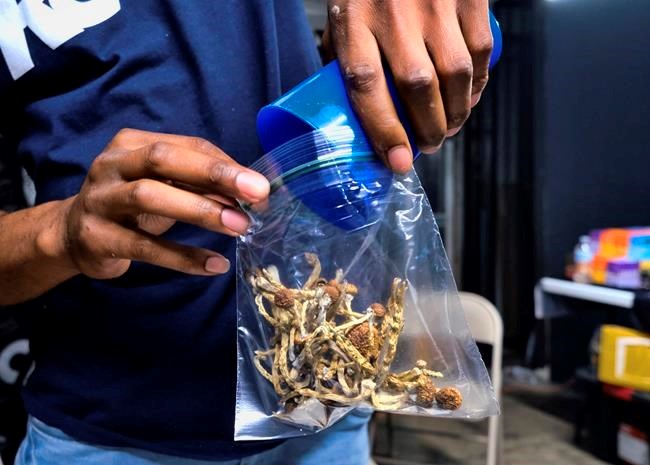Dave Phillips has been spending his Monday evenings in a virtual classroom, preparing 20 B.C. psychotherapists and nurses for a therapeutic session with psilocybin — the “magic” ingredient in magic mushrooms — so they can guide patients through a trip.
Phillips, who is based in Abbotsford, is the principal trainer for a program launched this month by Victoria-based TheraPsil, a non-profit that advocates for access to psilocybin therapy.
The 10-week program is designed to prepare health-care practitioners to safely and effectively guide patients through a psilocybin experience, and will culminate in each psychotherapist consuming psilocybin and having their own therapeutic session, as well as guiding a peer through the experience.
Psilocybin is a psychedelic that can produce altered states of consciousness, euphoria, spiritual experiences and a distorted sense of time lasting several hours. It can also have adverse effects such as paranoia and panic attacks.
Bruce Tobin, a clinical psychologist in Victoria and founder of TheraPsil, said when people take psychedelics, they can experience a wider range of emotions.
“They will become aware of emotional material that they’ve had repressed inside for a long time. It’s held unconsciously and it comes into conscious awareness and they’re able to deal with it,” he said.
Until a few years ago, Phillips, who has practised psychotherapy for 30 years, knew nothing about the therapeutic use of psychedelics. He was shocked when he came across research “from some of the best institutions in the world” about psychedelics used to treat depression and end-of-life anxiety.
The results were “staggering,” he said. Some of the research focused on people with treatment-resistant post-traumatic stress disorder or depression.
“By definition, we were getting zero per cent success rate with those populations. And the studies were showing with [psychedelics], etc. that we were getting, like 60 and 80 per cent positive outcomes.”
Phillips partnered with TheraPsil, which has helped 27 Canadians obtain Health Canada exemptions to legally access psilocybin, mostly to cope with end-of-life distress. TheraPsil has also helped 19 health-care practitioners successfully apply for exemptions in order to experience a psilocybin trip and better guide their patients.
The training program for practitioners was developed over six months and launched on March 1.
Phillips hand-picked the first 20 people to participate, selecting experienced psychotherapists and nurses who will learn about the history of clinical research and psychedelic use in Canada, current models of psychotherapy, neurobiology and palliative care before taking psilocybin themselves.
Participants will learn how to prepare someone for the experience and how to integrate what they learn during their trip.
“It’s not just as straightforward as saying: I’m afraid to die, or I’m afraid of dying. That’s normal, I think. I think most of us would have some feelings about that,” he said. “It’s when you get under the skin of every person’s story that you begin to hear that there’s very unique pieces that are contributing to the anxiety and despair that people feel when they’re faced with a diagnosis of a life-threatening disease.”
A second cohort of psychologists is expected to begin soon, and the goal is to expand training to a wide range of practitioners, he said. Phillips expects demand for psilocybin-assisted therapy to skyrocket with growing awareness.
“And we simply do not have even close to the number of clinicians we’re going to need so that we can safely and effectively use the substance with special populations. So that’s why the burden is to get training right away,” he said.
Tobin, who treated the first six Canadians who legally accessed psilocybin, said it was difficult to find medical practitioners who were open to psychedelic therapy a few years ago, but interest has grown.
“This training really shows Canada to be a world leader in psychedelic therapy at this point,” he said.
Spencer Hawkswell, CEO of TheraPsil, said it’s “incredibly important” for health-care practitioners who work with patients using psilocybin to have their own experience with the substance.
“Trying to explain to someone what it’s like to be on a substance is very difficult. Especially if a patient is having a particularly difficult time, for them to think that the doctor has never tried it and has no clue what they’re going through — it can be quite problematic.”
Hawkswell said the non-profit has so far helped palliative patients and people in remission from a palliative condition to gain legal access to psilocybin, but he hopes TheraPsil will be able to expand that group as the body of research grows.
regan-elliott@timescolonist.com



